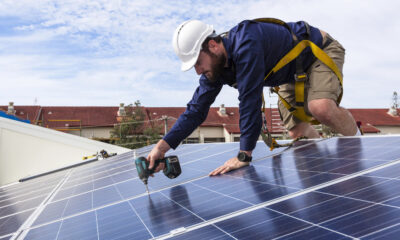

Economy
Commission Produce Country-Specific Energy Advice
The European Commission has made economic recommendations to its Member States. The advice is country-specific, but many believe it fails to recognise the Europe-wide link to the Paris Agreement and more must be done to support Europe’s energy transition.
The European Commission has urged Belgium, Czech Republic, Poland, Romania and the UK to address energy investment shortfalls – but without noting the need for energy investment to match the global Climate Agreement concluded in Paris in December and signed last month.
James Nix, Director of Green Budget Europe, said: “The Commission strangely stops half way it does press Member States to enhance their energy systems, but ignores the vital need that the resulting investment advances Europe’s transition to low-carbon energy, and delivers the Paris Climate Agreement.”
Green Budget Europe (GBE) say the EU doesn’t have the time – or money – to miss further reform opportunities to implement the Paris Climate Agreement. Nix added that a central provision of the Paris Agreement, to “make financial flows consistent with a pathway towards low greenhouse gas emissions and climate-resilient development” can only be made real by phasing out fossil fuel subsidies and shifting taxes from labour to pollution and non-renewable. He also said the Commission’s European Semester process must get behind the EU’s transition to clean energy, climate action and the circular economy.
GBE said: “Tax shift can help consolidate national budgets in a cost-efficient way while cutting the EU’s stubbornly high unemployment rate of 8.8 per cent hand in hand with the bloc’s 53.2 per cent level of energy dependence and the Commission has a much greater role to play in this.”
Nix added: “Environmental taxation across Member States is slipping, going down from 6.8 per cent in 2004 to 6.3 per cent in 2014. Labour taxes continue to make up more than half of total tax revenue (53.3 per cent) in the Euro zone while carbon emissions increased in 2015.”
Latvia is the only country requested to undertake “a growth-friendly tax shift towards environmental and property taxes”. And so, looked at overall, the 2016 Country Specific Recommendations (CSRs) miss the opportunity to deploy environmental taxation to boost investment and employment on the one hand, while delivering benefits for climate, environment and resource use on the other.
Three countries, France, Lithuania and Ireland, were asked to broaden their tax base, with France and Lithuania encouraged to raise VAT to achieve this. Nix said: “Yet VAT is more regressive and less growth-friendly than shifting tax to pollution and non-renewables. It is not clear why environmental tax reform is being largely overlooked by the Commission, particularly when it fits so well with EU priorities.”
The Commission used its Country Reports, documents which run around 100 pages per country, rather than country-specific recommendations, to highlight four countries (Austria, Belgium, Ireland, and Luxembourg) lagging behind on climate. Similarly, four countries are at risk of missing the renewables targets (Belgium, Ireland, Luxembourg and Netherlands). Eight member states – Belgium, France, Germany, Hungary, Malta, Poland, Slovenia and the UK – need to step up energy efficiency measures.
While the Country Reports identify 21 EU member states with potential for environmental tax reforms, 14 states that need to phase out environmentally harmful subsidies, and another 18 that should act on Circular Economy, there were, with the exception of Latvia, no country-specific recommendations to advance such reform.
Constanze Adolf, Vice Director of GBE, said: “Finance Ministers have a key role in implementing the Paris Agreement. The Semester needs to be re-framed to help Finance Ministers and Member States transition to a low-carbon Europe and deliver the agreement reached in Paris.”


 Environment12 months ago
Environment12 months agoAre Polymer Banknotes: an Eco-Friendly Trend or a Groundswell?

 Features11 months ago
Features11 months agoEco-Friendly Cryptocurrencies: Sustainable Investment Choices

 Features12 months ago
Features12 months agoEco-Friendly Crypto Traders Must Find the Right Exchange

 Energy11 months ago
Energy11 months agoThe Growing Role of Solar Panels in Ireland’s Energy Future



























